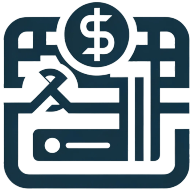7 Balancing Data Security With Payroll Digitization: Best Practices
In the age where cyber threats loom at every digital corner, safeguarding sensitive payroll information while embracing digitization is paramount. This article demystifies the intricate dance of data security and payroll digitization, offering best practices backed by industry experts. Dive into the wisdom of seasoned professionals and fortify your organization against the invisible dangers of the digital realm.
- Use Strong Technology and Smart Practices
- Conduct Regular Security Audits
- Implement Robust Access Control Measures
- Prioritize Data Encryption
- Ensure Compliance with Regulations
- Conduct Regular Security Audits and Assessments
- Foster a Culture of Security Awareness
Use Strong Technology and Smart Practices
Keeping payroll data secure while using digital tools requires both strong technology and smart day-to-day practices. Using a payroll system with built-in encryption and strict access controls is a great first step. Features like multi-factor authentication and automatic security updates help reduce risks, while regular system reviews catch any potential issues early.
Beyond the technical side, employee awareness is just as important. Encouraging good habits like using strong passwords, being cautious with emails, and following clear security guidelines helps prevent data breaches! Instead of relying only on software, we make sure everyone understands how to protect sensitive information in their daily work.

Conduct Regular Security Audits
At Tech Advisors, we take data security and privacy in payroll seriously, especially as more companies move their payroll systems online. Digital payroll brings efficiency, but it also increases the risk of cyber threats. We work closely with businesses to protect sensitive employee information through encryption, multi-factor authentication, and strict access controls. Cybercriminals target payroll data because it contains personal and financial details. That's why we emphasize proactive security, not just reactive fixes.
One best practice we follow is conducting regular security audits. We've seen cases where businesses assumed their payroll systems were secure, only to find gaps during a security check. In one instance, a client in the legal industry discovered that former employees still had access to payroll records. After a full review, we helped them implement stronger access controls and automatic account deactivation policies. These small adjustments made a significant difference in reducing their exposure to risk.
Employee awareness is just as important as technical protections. We advise clients to train staff on recognizing phishing attempts, which remain one of the biggest threats to payroll security. In one memorable case, a CFO nearly approved a fraudulent payroll transfer because an email looked legitimate. Fortunately, our training helped them spot the red flag before any damage was done. Technology plays a key role in security, but well-informed employees are the first line of defense.
Implement Robust Access Control Measures
To balance data security with payroll digitization, it's important to implement robust access control measures. This will help ensure that only authorized personnel have access to sensitive information. By doing so, you can prevent unauthorized access and potential data breaches.
This strategy includes using strong passwords, implementing multi-factor authentication, and regularly updating access permissions. Take the time to review and strengthen your access control measures today.
Prioritize Data Encryption
Prioritizing data encryption at rest and in transit is essential for data security during payroll digitization. Encrypting data ensures that even if it is intercepted or accessed without permission, it cannot be read. Encryption serves as a critical safeguard against cyber-attacks and data theft.
It is important to use strong encryption algorithms and keep encryption keys secure. Take action now to prioritize and implement strong encryption methods.
Ensure Compliance with Regulations
Ensuring compliance with relevant regulations is crucial when digitally managing payroll. Compliance helps protect data by adhering to industry standards and legal requirements. Failing to comply can result in significant penalties and put sensitive data at risk.
It's important to stay updated on changes to regulations and ensure that your digitization processes align with legal standards. Act now to review and improve your compliance practices.
Conduct Regular Security Audits and Assessments
Conducting regular security audits and assessments can significantly enhance data security in payroll digitization. These audits help identify potential vulnerabilities and areas for improvement. Regular assessments can lead to timely updates and patches that can prevent security breaches.
It is a proactive approach that ensures a consistently secure digital payroll system. Schedule a security audit today to bolster your payroll security.
Foster a Culture of Security Awareness
Fostering a culture of data security awareness among employees is vital for protecting sensitive information in payroll digitization. When employees understand the importance of security and are trained to recognize potential threats, they become the first line of defense. This culture can be established through regular training sessions and clear communication of security policies.
Encouraging a security-minded workplace can reduce the risk of human errors that lead to data breaches. Start building a culture of security awareness in your organization now.


